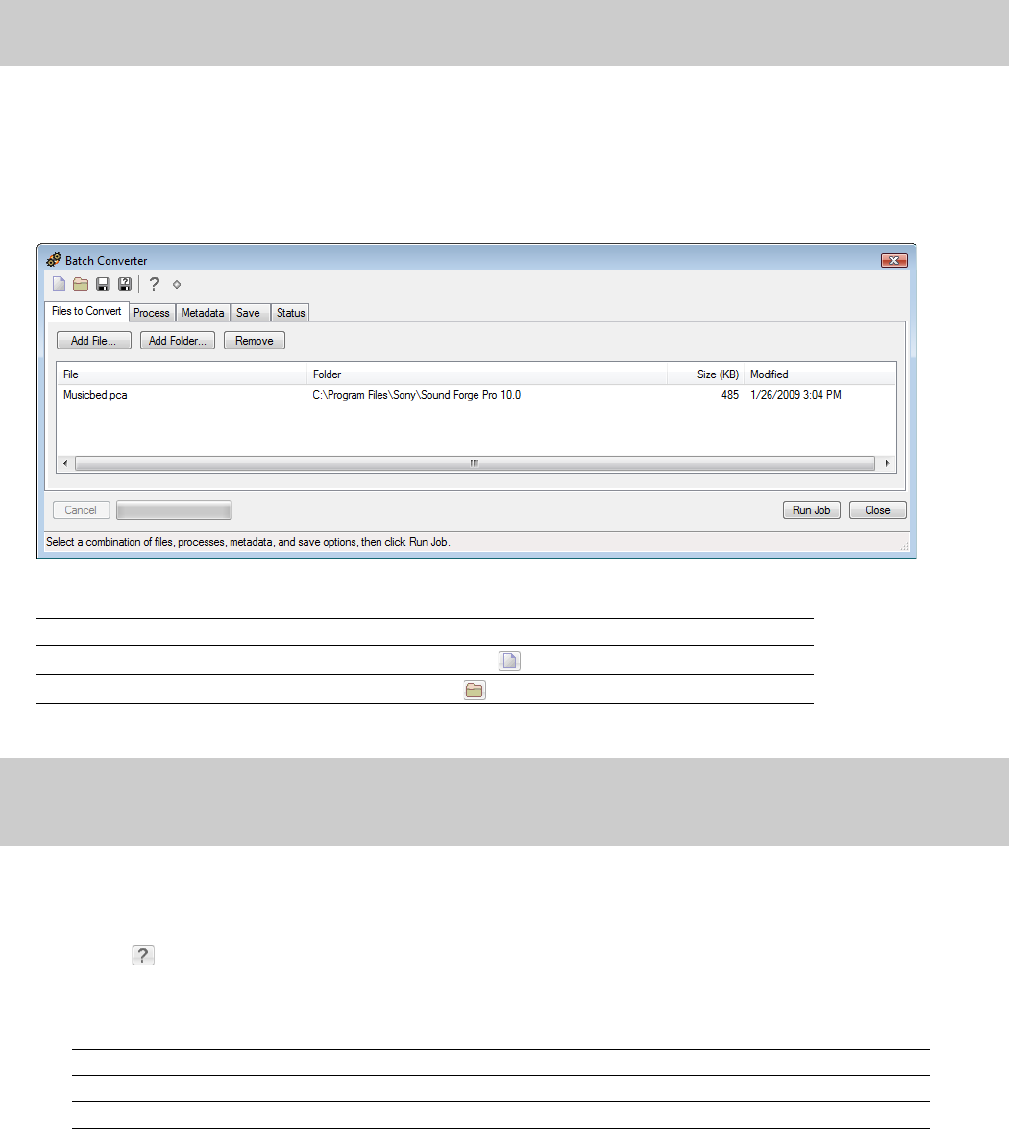
6.
Select the Save tab and verify the file output settings. For more information, see Creating or editing a batch job on page 239.
Note:
If you want to convert to multiple formats at once, click the Add Save Options button to create a setting for each file type that
you want to convert.
7.
Click the Run Job button to start processing. The Batch Converter will then display the Status tab to allow you to monitor the
progress of your batch job.
Creating or editing a batch job
1.
From the Tools menu, choose Batch Converter. The Batch Converter window is displayed.
2.
Create a new batch job or open the batch job that you want to edit.
If Then
You want to create a new batch job
Click the New Batch Job button (
).
You want to edit an existing job
Click the Open Job button (
), select a batch job, and click the Open button.
3.
Select the Process tab to choose the processing settings that you want to apply.
Tip:
When you convert files to a compressed format such as MP3, peaks that are at or near 0 dB may be clipped by the compression
process. You may want to consider normalizing first to reduce the possibility of clipped peaks. Normalizing to a peak level of -0.9 dB is a
good starting point.
a.
Choose a plug-in from the Select drop-down list and click the Add Effect button to add it to the end of the list. The plug-in
dialog is displayed.
b.
Adjust the effect’s settings and click the OK button. For more information about an individual effect’s settings, click the Help
button ( ) in the plug-in window.
c.
Repeat steps 3a and 3b as necessary to create your effects list.
d.
Perform the following actions as needed:
If Then
You need to change an effect’s preset Select the effect in the list and click the Change Preset button.
You need to change an effect’s position in the chain Select the effect in the list and click the Move up or Move down button.
USING SCRIPTING |
239
